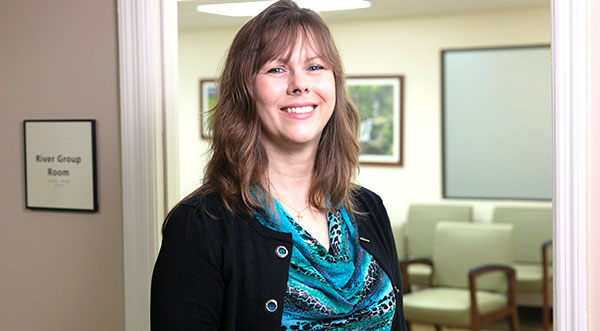Health First Invests in Innovative Mental Health Programs in Brevard County
By Space Coast Daily // September 5, 2025
Suicide is complex, but there are red flags loved ones can look for

Health First invests in innovative programs and partnerships to provide lifesaving support across Brevard County
BREVARD COUNTY, FLORIDA — Suicide is one of the leading causes of death in the United States, and in Brevard County, the rates are especially troubling.
Recent data from the Florida Department of Health shows Brevard’s suicide rate at 20.7 deaths per 100,000 residents — far higher than the state average of 14.1, which itself is above the national rate.
“Those numbers are shocking,” said DeAnn Collins, MSW, LCSW, Clinical Manager of Behavioral Services at Health First Behavioral Wellness. “They remind us how urgent this issue is in our community.”
Across Brevard, more residents are recognizing the importance of seeking mental health treatment. That’s why resources such as the 988 Suicide & Crisis Lifeline, available nationwide 24/7, and 211 Brevard, which links callers to trained crisis counselors and local services, are so vital.
The Health First Foundation has provided grant funding to 211 to help strengthen these safety nets and ensure more people can find help when they need it most.
While suicide affects every age group, young people face additional pressures. Constant exposure to social media can intensify feelings of hopelessness and worthlessness. Online bullying, comparison culture, and round-the-clock screen time can all play a role.
Collins encouraged families to build open communication around technology use, and for individuals to recognize when stepping away from digital platforms may help protect their mental health.
Suicide is complex, but there are red flags loved ones can look for: withdrawal from friends and activities, excessive sleeping, or frequent talk of hopelessness and death. At work or school, changes such as absenteeism or sudden disengagement may signal distress.
Risk factors include financial hardship, chronic pain, substance use, family history of suicide, or prior attempts. Substance abuse can impair judgment and lead to impulsive decisions.
One barrier to prevention is the persistence of myths. Not everyone who contemplates suicide is depressed, and not all people with depression have suicidal thoughts. Another misconception is that talking about suicide will plant the idea — when in fact, open conversations can save lives.

“Creating safe spaces where people feel they can share what they’re experiencing is one of the most powerful prevention tools we have,” Collins said.
Approaching a friend, coworker, or family member can feel daunting. Collins recommends being direct, empathetic, and willing to listen. Asking plainly whether someone is thinking of hurting themselves shows care and may open the door to professional help.
Support can also take the form of encouraging a doctor’s visit, suggesting an activity they enjoy, or simply spending time together. Primary care providers play an important role — often serving as the first point of disclosure. Annual wellness visits for Medicare patients now include depression screenings, and Collins hopes to see such practices expand across all patient populations.
Health First is expanding access to behavioral health through its collaborative care model, embedding behavioral care managers directly into primary care practices. These professionals work alongside physicians to offer short-term counseling, problem-solving, and support, eliminating the need for a separate referral.
Currently, five practices have on-site behavioral care managers, with additional support available through referrals and virtual visits. Expansion is already underway, aligning with the national movement to integrate mental health into everyday healthcare settings.
Health First also offers outpatient therapy, intensive outpatient programs, and group programs for support. Patients and families are encouraged to seek care in the emergency department when urgent help is needed.
In addition to Health First programs, residents can access:
■ 988 Suicide & Crisis Lifeline — nationwide, 24/7.
■ 211 Brevard — local crisis counseling and referrals.
■ Brevard CARES Mobile Response Team — on-site support for youth and families.
■ Or present to the closest Emergency Department for support
Family members who believe a loved one is at immediate risk also have the legal option to request evaluation under Florida’s Baker Act, which applies to all ages.
Collins stressed that the most important step is beginning the conversation. Checking in regularly with friends, coworkers and family members helps establish a baseline for mental health — making it easier to notice when someone may be struggling.
“Suicide is preventable, but only if we reduce stigma and make it safe to talk about,” she said.
For Brevard County — where rates are among the highest in Florida — prevention efforts are critical. Through education, resources and expanding access to care, Health First is committed to helping the community take those steps.
“There is hope, and there is help,” Collins said. “And Health First is here to support you.”
If you or someone you know is in immediate danger, call 911. For 24/7, confidential support, dial or text 988 to connect with the Suicide & Crisis Lifeline. Locally, you can also call 211 Brevard for resources and support.
To learn more about Health First Behavioral Wellness services, visit HF.org/BehavioralWellness.













